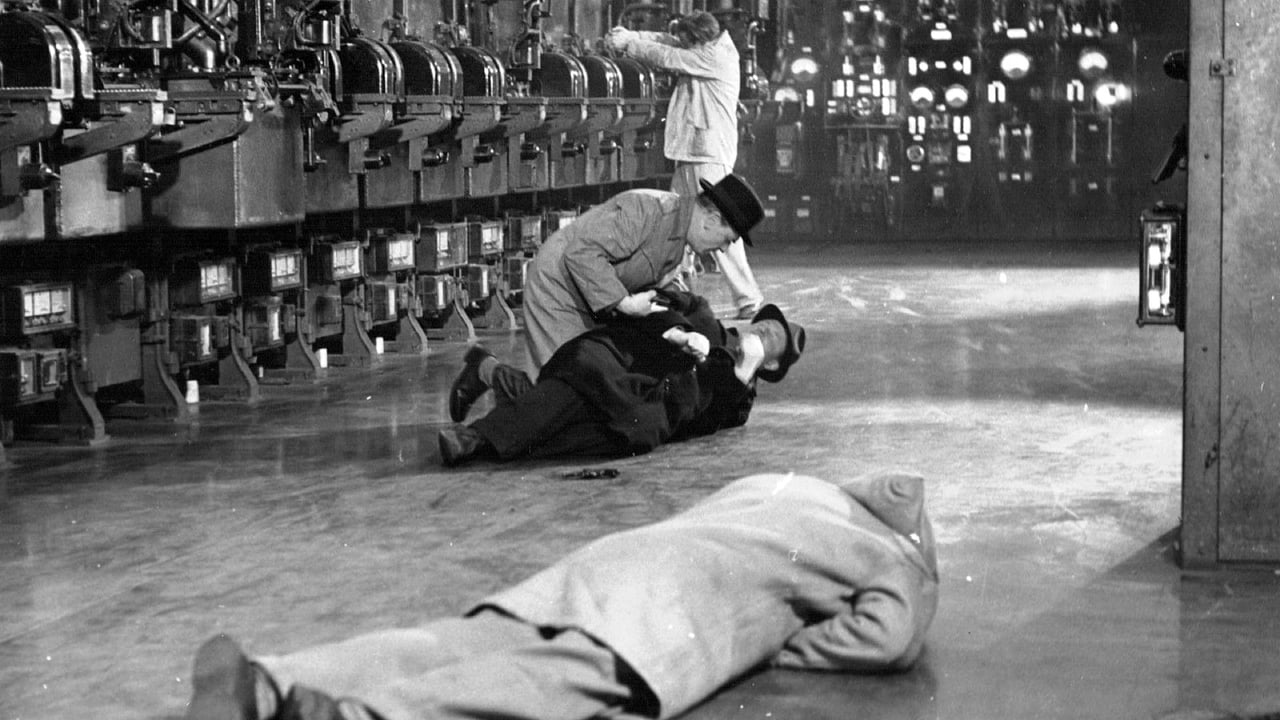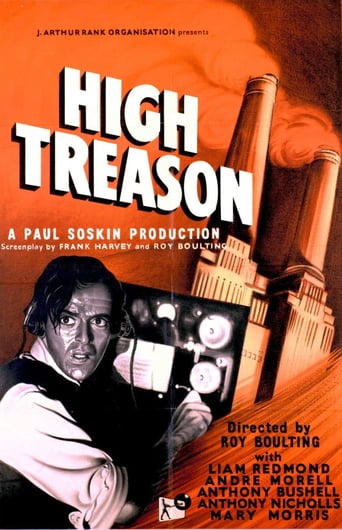



recommended
An unexpected masterpiece
This movie was so-so. It had it's moments, but wasn't the greatest.
View MoreThrough painfully honest and emotional moments, the movie becomes irresistibly relatable
View MoreRoy Boulting's drama reminded me of the Archer's HOUR OF GLORY, about the work of bomb disposal during the war, released a couple of years earlier. Like that drama, there's nothing glamorous or flag-waving about it. The war may have grown cold and it may now be about Communist cells and politicians happy to use explosions that kill dockworkers for their own political advantage, but it has the same dirty and unhappy feeling about it.Cinematographer Gilbert Taylor abets this gloomy and paranoid atmosphere with stark British noir lighting. The sets are cramped and crowded, and starkly lit from the side and overhead, to offer dramatic shapes, but never let you look anyone in the eye. The actors are all good: no stars of the era, but performers you would recognize, familiar faces..... so that the audience members would say don't I know him? He couldn't be a bad 'un.... but in Boulting's nasty world, the best can turn out to be the worst, and the only salvation lies in the fact that there is yet some decency among the unregarded.Well, that last pious wish was because he was working among other big-name behind-the-screen talent and money men. Soon enough he would reunite with his twin brother John and they would turn out some movies where only fools were decent.
View MoreThis film is extremely cleverly made up. No one knows anything in the beginning, and the actors and audience alike are left in complete ignorance of what is going on and like the police only left with a few loose ends leading nowhere, until at last Mr Ward is caught in a picture, which provides the key to untangling the extremely comprehensive plot with its circle of saboteurs.Another key is the tutorial institute, and some of the finest scenes are from there. for instance when the inspector has to attend a music performance of thoroughly modern music not sounding very well, and you can see how he suffers, while the others pretend to understand the meaning of this abstract katzenjammer.Kenneth Griffith makes an unforgettable performance as the martyr of the intrigue, getting caught up in a web he can't extricate himself from and still making something of the hero of the drama - without him the police would never have arrived in time.Another striking performance is Anthony Nicholls as the MP making a thoroughly charming and cultivated presence with great villainy hidden beneath. His final conversation with the commodore is the top of the film with the lights efficiently going out...Notable is also Joan Hickson as the mother, playing a much more convincing and heart-rending role than her later better known ones as Miss Marple.Another vital part is Mary Morris as Anna Braun, irresistibly beautiful like an impressing viper full of venom whom you just must be paralyzed by for fascination until she stings...But the film is full of such characters. You can never imagine that Stringer is not actually played by a Russian, his accent is so perfectly Russian, and the music adds to it as well, especially at the tutorial college with its concerts as the perfect smokescreen for a truly devilish coven - the film reminds not a little of Hitchcock's "Sabotage" in its recklessly cruel set-up.
View MoreAn otherwise workmanlike British thriller with familiar overtones of anti-Communist paranoia is salvaged by a lively script that underplays the bellicose propagandizing of other, similar witch-hunts. The emphasis instead is on action and character and some colorful local dialogue, as a network of saboteurs infiltrates the highest (and lowest) levels of democracy with nefarious plots to undermine England's power structure. The enemy agents are never precisely identified (it's clear who they are long before the authorities catch them 'Red' handed), and of course they're no match for the stiff upper lips of Scotland Yard, although it takes an extended gun battle at the Battersea power station to prove it. The film was less flattering and thus less popular than its predecessor, 'Seven Days to Noon', but seen today it remains an enjoyable, well-crafted relic from the warmer days of the Cold War.
View MoreI agree with the writer of the previous comments. This is a little gem of a thriller, not because it has unusual plot twists, or even especially good acting, but because of its fantastic pacing (more like a modern thriller than the usual fare from 1951), and because of its fabulous shot-on-location scenes that put you right in post-war London. I grew up in post- war Britain, so perhaps I'm biased; but some of my favourite films are those which manage to escape the confines of the studio, something that was much rarer in those days than it is now. The world of the film is now more than half a century distant, and when you watch those streets, buses, and cars, those people walking around, it's slightly shocking to realize that many of them now sleep the big sleep, that you're looking through a window into the past. This alone, for me, is worth the price of admission.The film is also the least talked about, most neglected of all Boulting's films, and as far as I can make out, hasn't ever been released on VHS, let alone on DVD, probably because, once the 1960s New Left had come into the ascendancy, especially in the various film studies institutes, the kind of old fashioned Cold War politics Boulting's film embodies were seen as both embarrassing and naive. Well, it's time for a re-evaluation. The politics of the film never did make much sense, so what we're left with is an exciting, well-crafted, and beautifully paced thriller, one that has, perhaps surprisingly, more heft than many contemporary thrillers, certainly more pizazz than the usual James Bond entries. If you can see it (and I discovered it courtesy of A&E, who ran it as a kind of joke several times in the early 1980s) sit back and enjoy it.
View More